10 best LGBTQ TV shows of 2020
These are the series we couldn't get enough of in 2020.

Words: Jamie Tabberer and Will Stroude; picture: Hulu’s Love, Victor
In a year that saw us all spend more time indoors than we could have possibly imagined last January, it’s a good thing 2020 left us spoilt for choice when it came to LGBTQ television we could binge-watch from the comfort of our own homes.
From comedy to horror to documentaries about tiger-collecting convicts, LGBTQ-inclusive stories and characters really did get everywhere this year, making our annual round-up of the top 10 a near-impossible task.
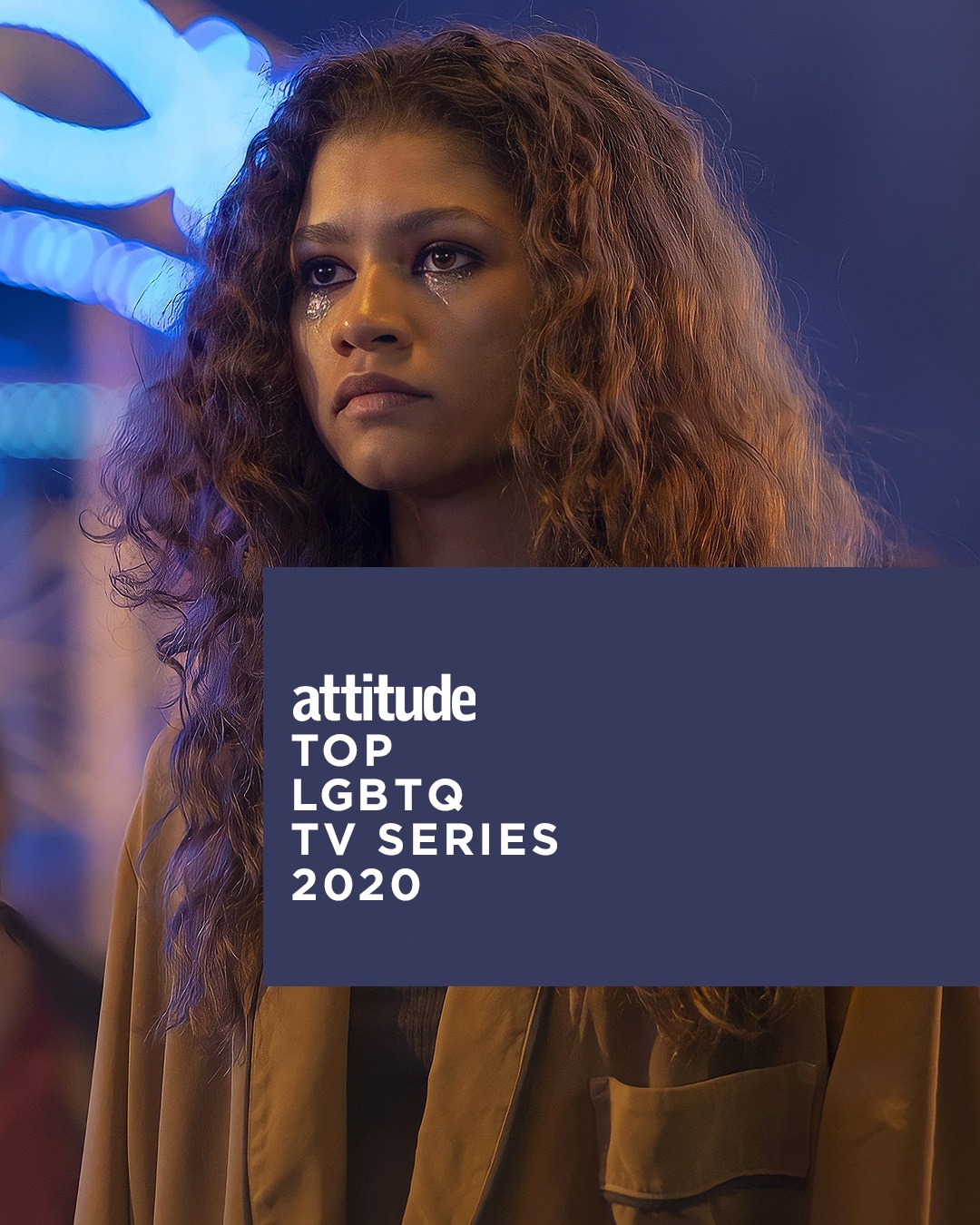
We’ve persevered, however, and narrowed down this year’s wealth of queer tele to a select few series that should remain on your must-watch list.
Be they powerful vessels for representation and inclusive story-telling or just straight-up addictive viewing, here’s Attitude’s 10 best LGBTQ TV shows of 2020…
Ratched
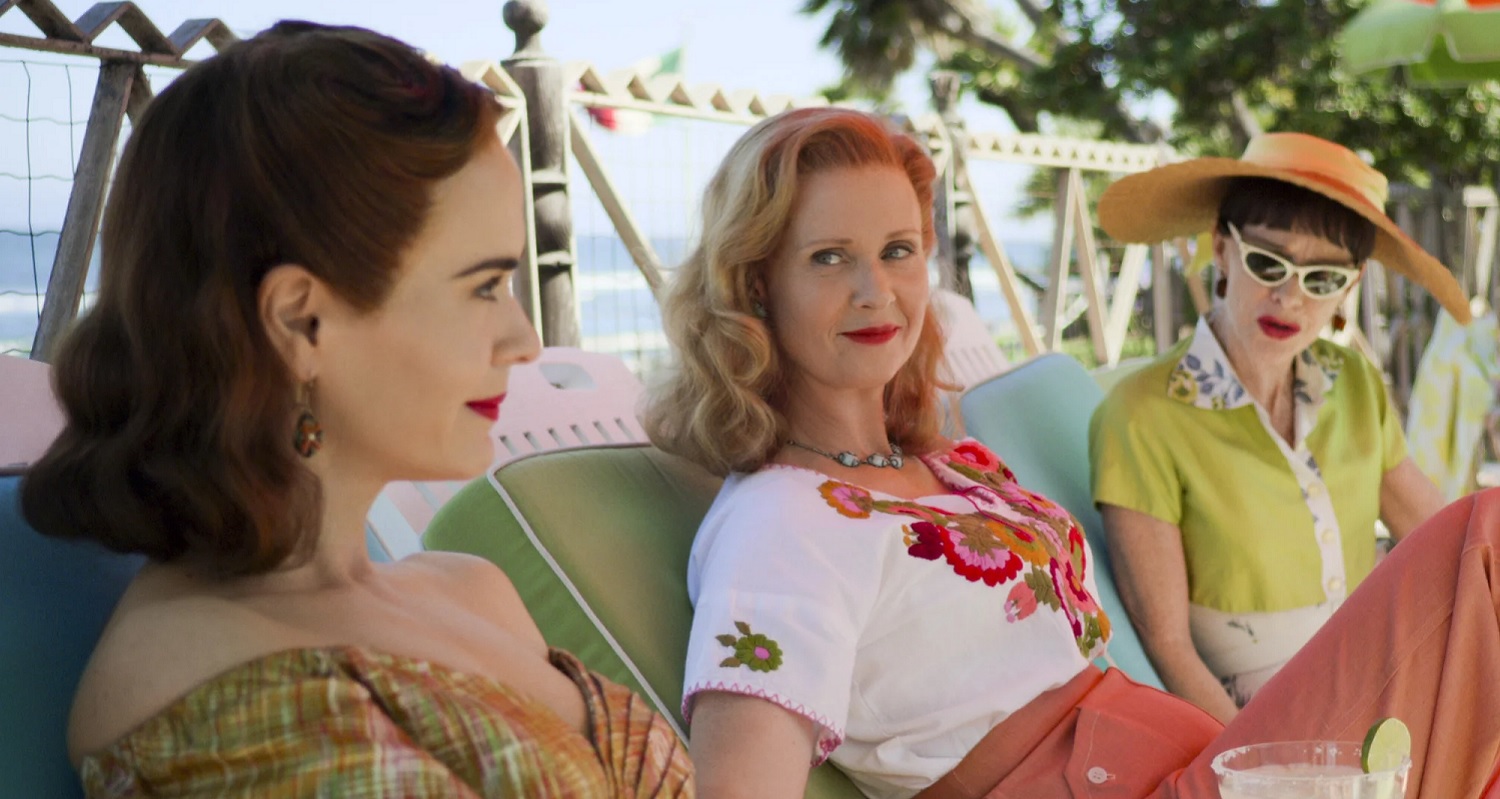
Ryan Murphy got us talking in 2020 with The Prom, which he directed, and Boys In the Band, which he co-produced – but he also pushed the queer envelope with his blockbuster Netflix TV shows.
Hollywood was passable, it was ultimately obscured by the gritty, horrifying Ratched, which broke viewing records on the platform.
Its random jumping off point – its the origin story of One Flew Over the Cuckoo’s Nest asylum nurse Mildred Ratched – was a punt, but with the never-not-amazing Sarah Paulson in the titular role, and a welcome return from Sex and the City‘s Cynthia Nixon as her love interest, Ratched was immediately watchable.
It sailed close to the wind at times – eye-watering scenes of gay conversion therapy were especially challenging – but generally speaking, the representation of sexuality here is thrillingly unapologetic.
The Haunting of Bly Manor
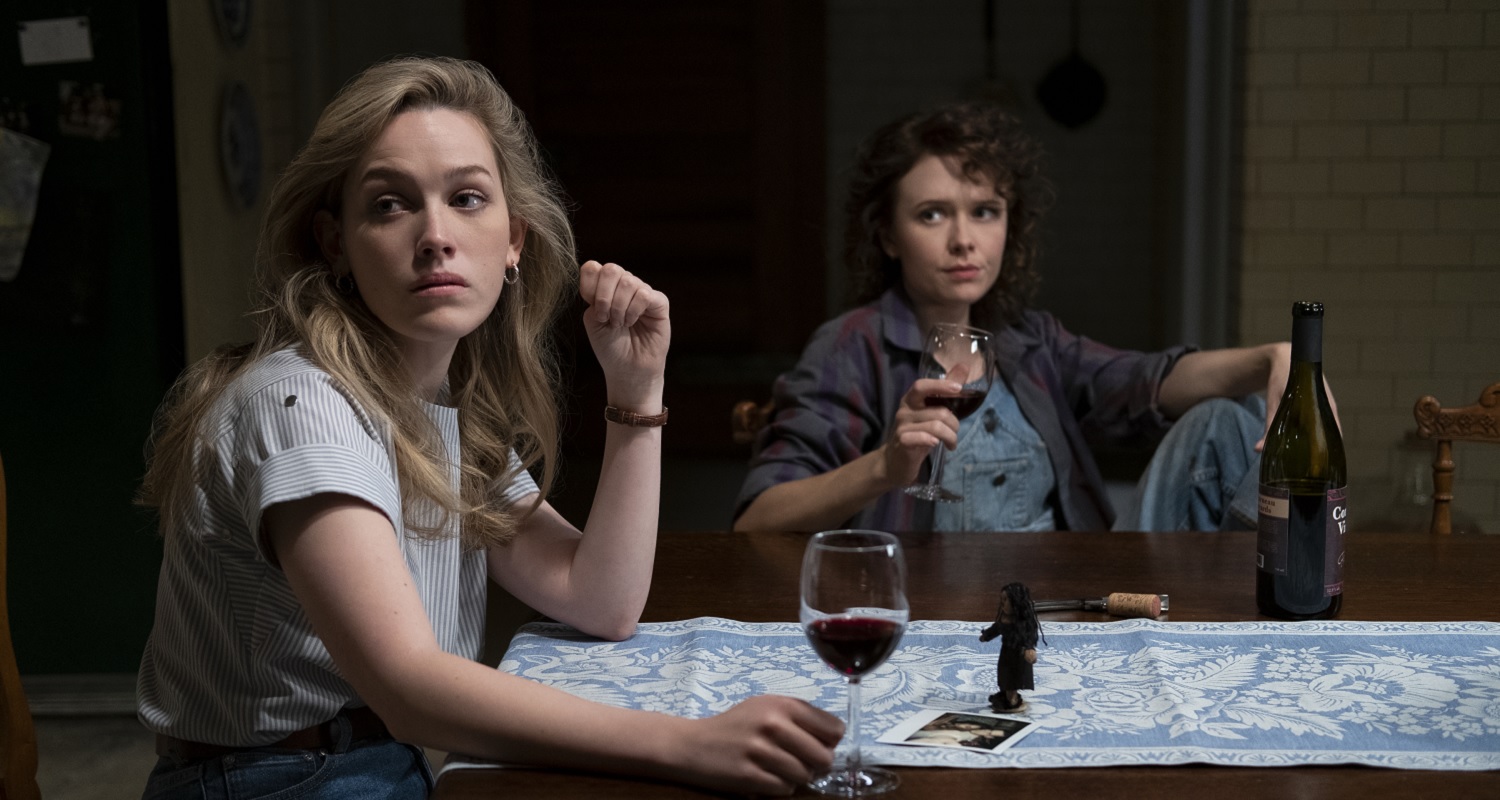
The Haunting of Hill House was excruciatingly scary. Follow up Bly Manor, not so. In fact, it as an extreme gear switch that left a lot of fans disappointed; more ‘sensitive drama’ than ‘balls-out horror’.
But once you’ve acclimatised to its gentle tone, Bly‘s beauty reveals itself – most movingly in its central love story.
A wide-eyed, emotionally raw Victoria Pedretti plays Dani, governess to two eeriely eccentric kids in a creaky English mansion; Amelia Eve is no-nonsense gardener Jamie, with whom romance blossoms. Ghosts interfere.
Nevertheless, a relationship that might’ve seemed tokenistic feels, in the hands of creator Mike Flanagan (also director of The Shining sequel Doctor Sleep), vital and real. It’s all very sweet. That said, if there’s ever a third season, we’re plumping for a scarefest…
Sex Education

Netflix again, this time realising inclusivity nirvana (or something close to it) with SE2 of Sex Education, in which frisky, drama-hungry teens prove life in the country is anything but boring.
Asa Butterfield is once again charming as Otis, a guerilla sex therapist to his classmates; Gillian Anderson perfect as his actual sex therpist mother.
But among a large ensemble cast of likeable characters, Emma Mackey as brooding and complex Maeve is a stand out, while Ncuti Gatwa as the fabulous Eric is one of the most inspiring, affecting LGBTQ characters this writer’s ever seen. And his love interest Rahim (played by former Attitude cover star Sami Outalbali)? A dream.
It’s overambitious – how many vivid characters can you cram in before saturation point? – and the finale’s a misfire. But otherwise, this is one for the history books.
Schitt’s Creek
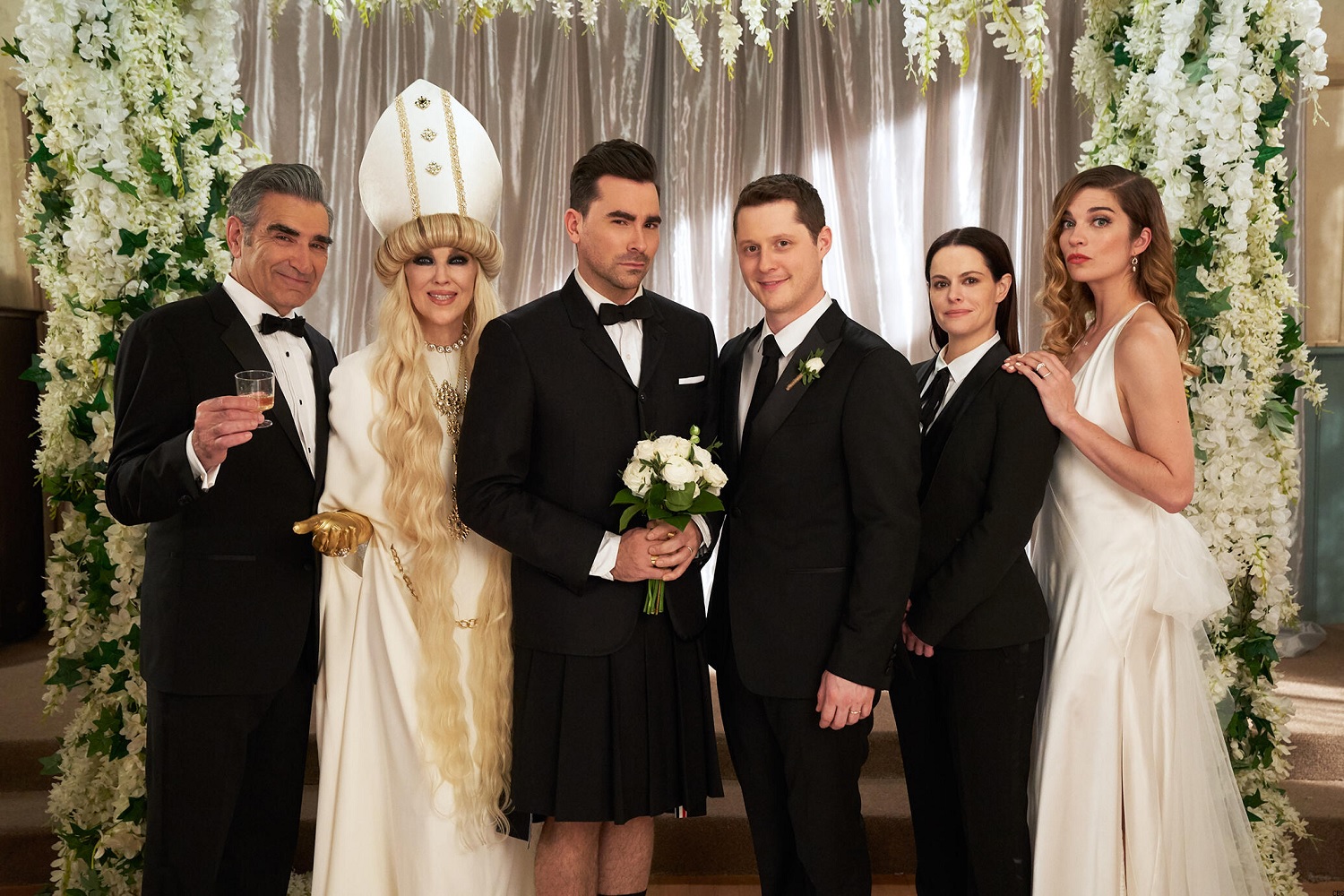
And here’s another: Schitt’s Creek swept this year’s Emmys, promptly dividing the world in two. Those with the show from the beginning, and those now desperately catching up.
Indeed, six years after its debut, the show’s mining ever-richer laughs from the once-wealthy family forced to relocate to the small town they once bought as a joke.
Catherine O’Hara is bolder than ever as matriarch Moira, but it’s Daniel Levy, who plays pansexual fashionista David Rose, who’s now the show’s biggest star.
Dan created SC with his dad Eugene Levy, and at the Emmys, he became the first person to win gongs in all four major disciplines (producing/writing/directing/acting) in a year. This alone makes SE6 essential, historic viewing.
Never Have I Ever
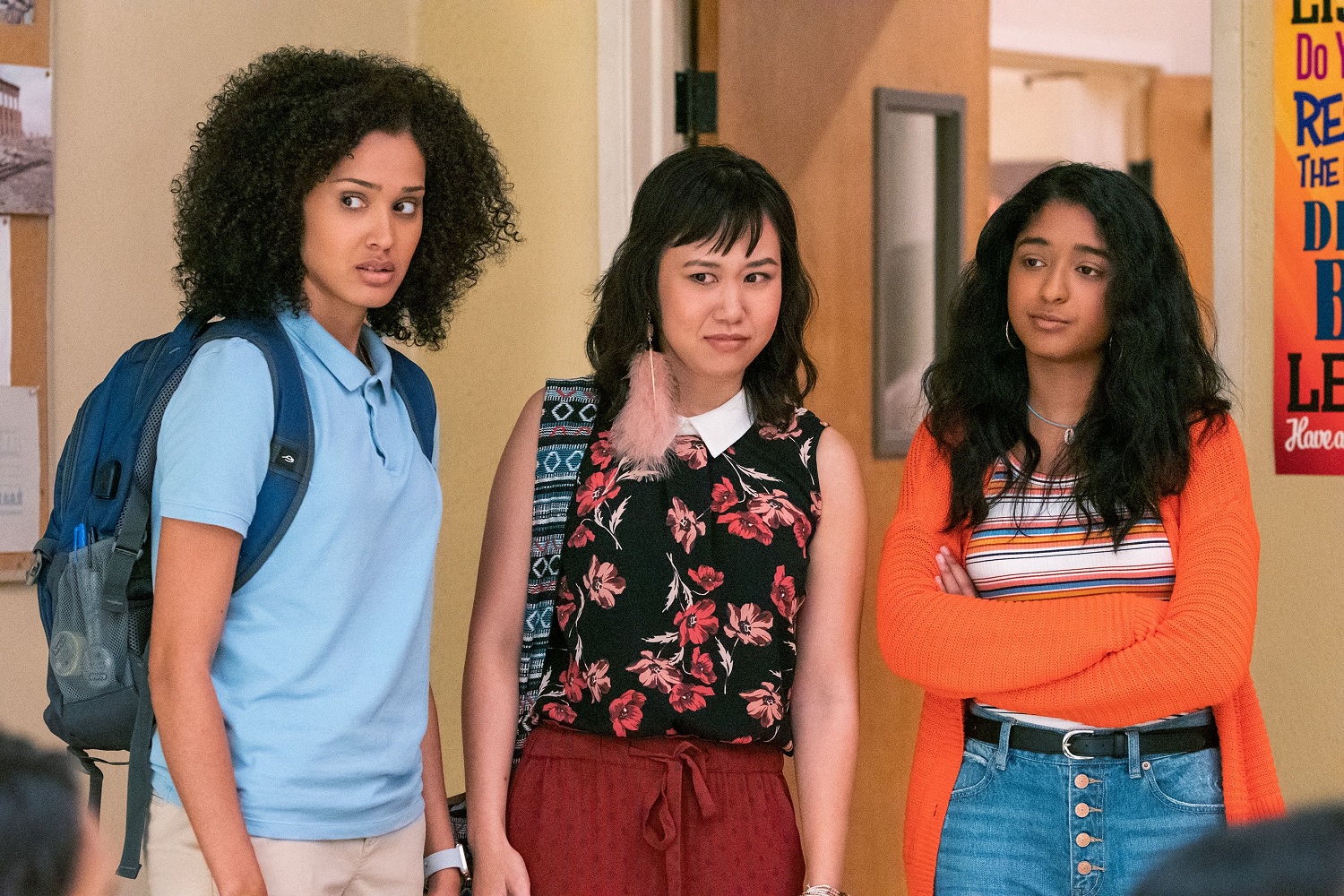
Think of this as a sparky spiritual cousin to Sex Education, but set in the US. Filmed, in fact, on the immaculate street that was once Wistera Lane on Desperate Housewives.
In essence, NHIE is about Indian-American teen Devi’s (played by the achingly cool Maitreyi Ramakrishnan) attempts to come to terms with the loss of her father. At times, it’s heavy.
But this Mindy Kaling-penned show’s also about life, and Devi – who is often entertainingly shallow – for sure lives luminously, whether epically thirsting over her high school crush or beavering away to improve her social status. She’s always extra.
While not featured as prominently as some on this list, NHIE‘s main queer character Fabiola, played brightly by Lee Rodriguez, is still a crucial component that we hope to see more on the next season.
Tiger King
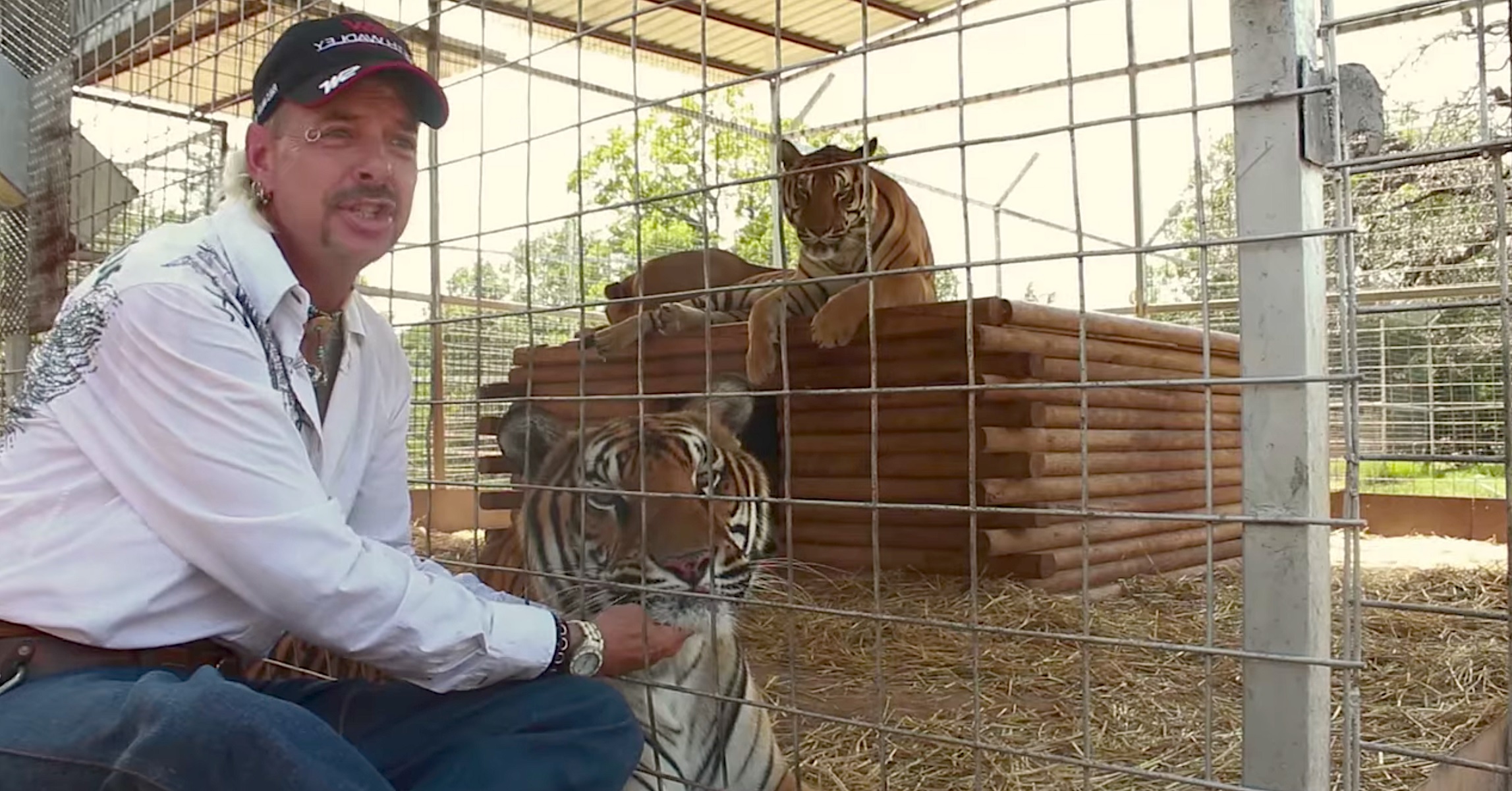
Gritty docuseries Tiger King was as brash and garish as its protagonist’s outfits. And in other circumstances, might have proved just as disposable.
But the show, about the life and times of controversial zoo owner Joe Exotic, dropped when much of the world was entering coronavirus-induced lockdown. A global water cooler moment ensued.
Thus, a flawed show that feasts greedily on eccentricity and struggle (seven episodes and a special? A 90-minute feature would’ve sufficed) became a cultural sensation.
For better or for worse, Joe and his lovers brought gay representation on a mass scale, while Joe’s nemesis Carole Baskin, it turns out, brought bi visibility.
Euphoria

A Skins for Gen Z, the wild first season of US teen drama Euphoria again made inclusivity seem effortless. But this year’s special did away with the cis-het characters almost completely. (For the record, all are entirely compelling and we can’t wait to meet them again).
It instead focuses near-exclusively on main character Rue (played flawlessly as ever by Zendeya); her ethereal on-off girlfriend Jules, played by Hunter Schafer, makes a brief, welcome appearance.
The effect of Covid-19 restrictions are plain to see, with 90% of the episode taking place in a deserted diner. But producers lean into the limitations, diving into a deep, lengthy conversation about addiction between Rue and her sponsor Ali: the latter played by Colman Domingo, whose own passionate acting and brief sub-plot will bring you to tears. Ultimately, though, it’s as a vehicle for Zendeya to show why she’s probably a future Oscar-winner.
A second special, focusing on Jules, airs in late January 2021.
Love, Victor
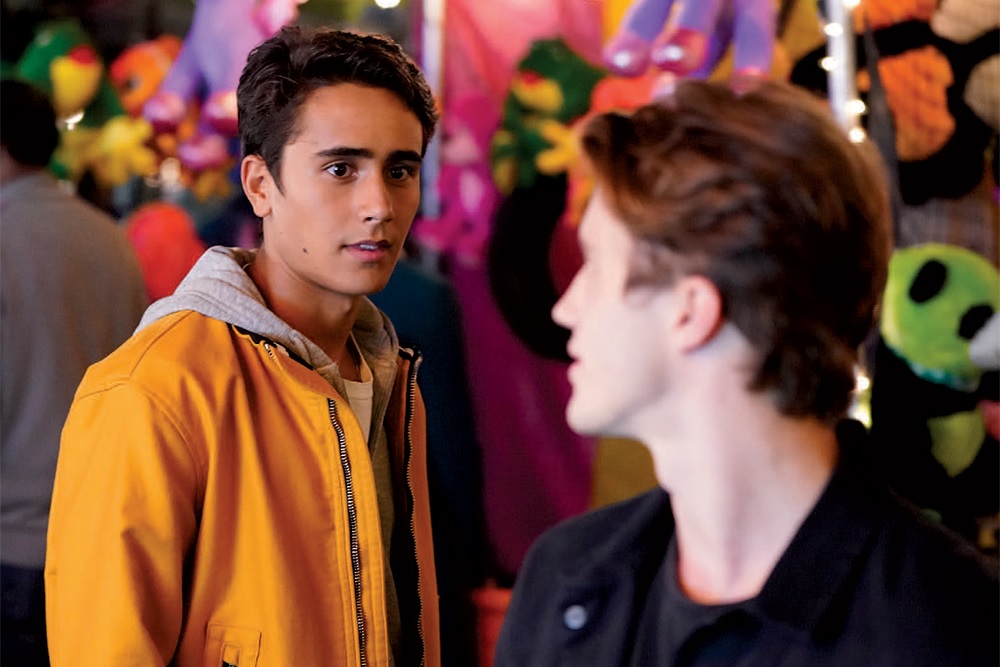
If there were any lingering fears that Love, Victor would be a cloying, cynical cash-in after the success of 2018’s Love, Simon, they were allayed within the opening salvos of Hulu’s broad-hearted LGBTQ teen drama.
Thank goodness.
In Victor Salazar, Michael Cimino delivered young fans with an endearingly unsure protagonist to rival Nick Robinson’s Simon Spier.
While the show being shunted from its original home Disney+ over its more ‘grown-up’ theme was a homophobic dog whistle for many, Love, Victor’s very existence remains a stride forward that would have been unimaginable just a decade ago.
I May Destroy You
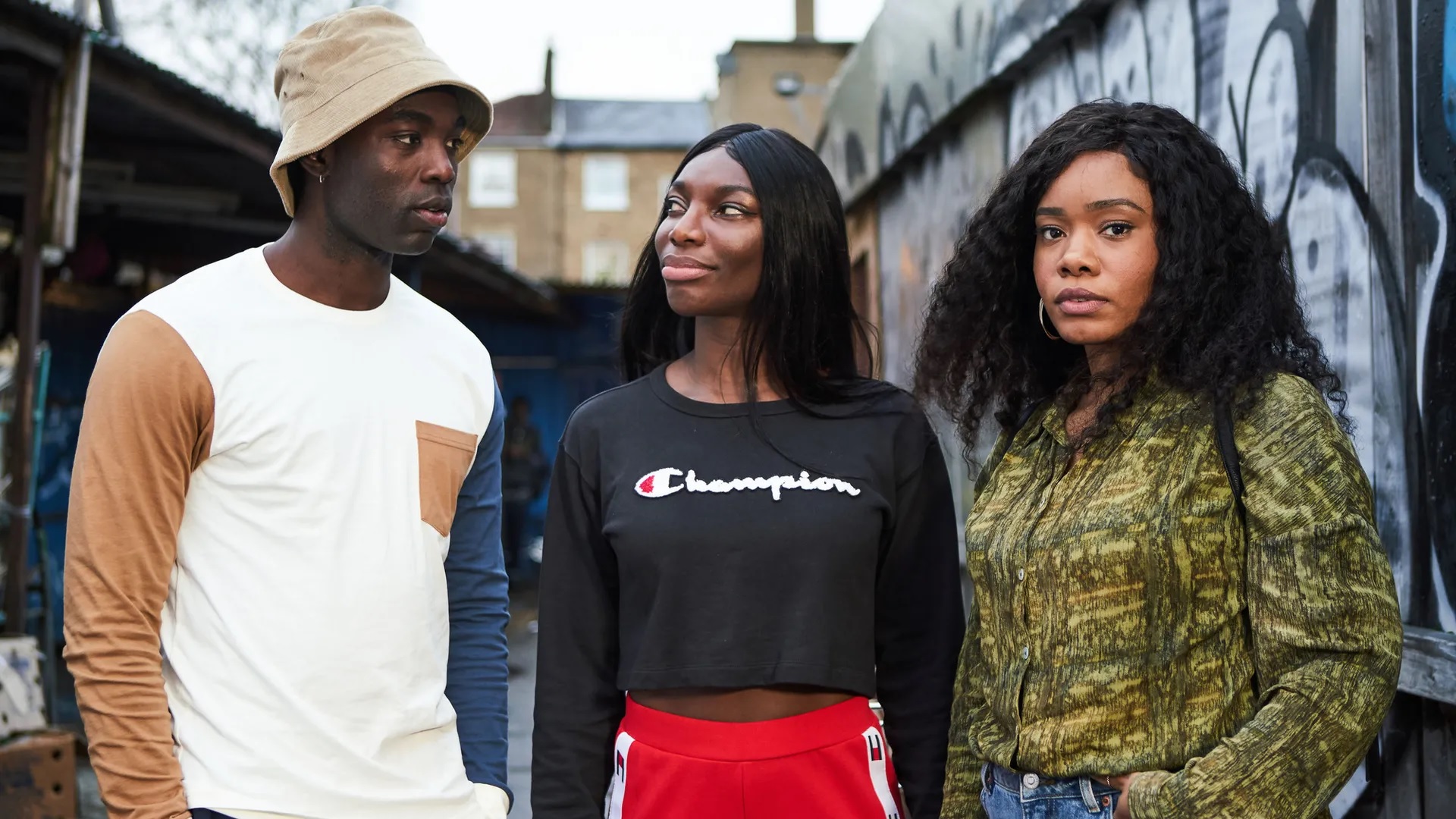
Perhaps the year’s powerful LGBTQ character was birthed from the year’s most powerful TV show: I May Destroy You, written by and starring Michaela Coel.
The 12-parter follows social media star-turned novelist and Londoner Arabella, whose life is changed forever after she is raped. Themes of rape and sexual assault purvey every episode, as well as discussions of race, class and more. It’s a dynamic mix offset with much humour and fun among Arabella and her best friends Kwame (Paapa Essiedu) and Terry (Weruche Opia).
Many shows have an everything-and-the-kitchen-sink problem, with queer characters clumsily tacked on. Destroy You achieves a sublime balance, and gives the thoughtful, intense, already-out Kwame plenty of space to breathe and grow – even if a sole trans character is underserved in the penultimate episode.
Through Kwame’s storylines, at least, the woefully-underdiscussed subject of gay male rape and sexual assault is explored – compounded by the fact that, as Essiedu told Digital Spy earlier this year, “the police are not generally set up to see Black men in general as victims.”
Feel Good
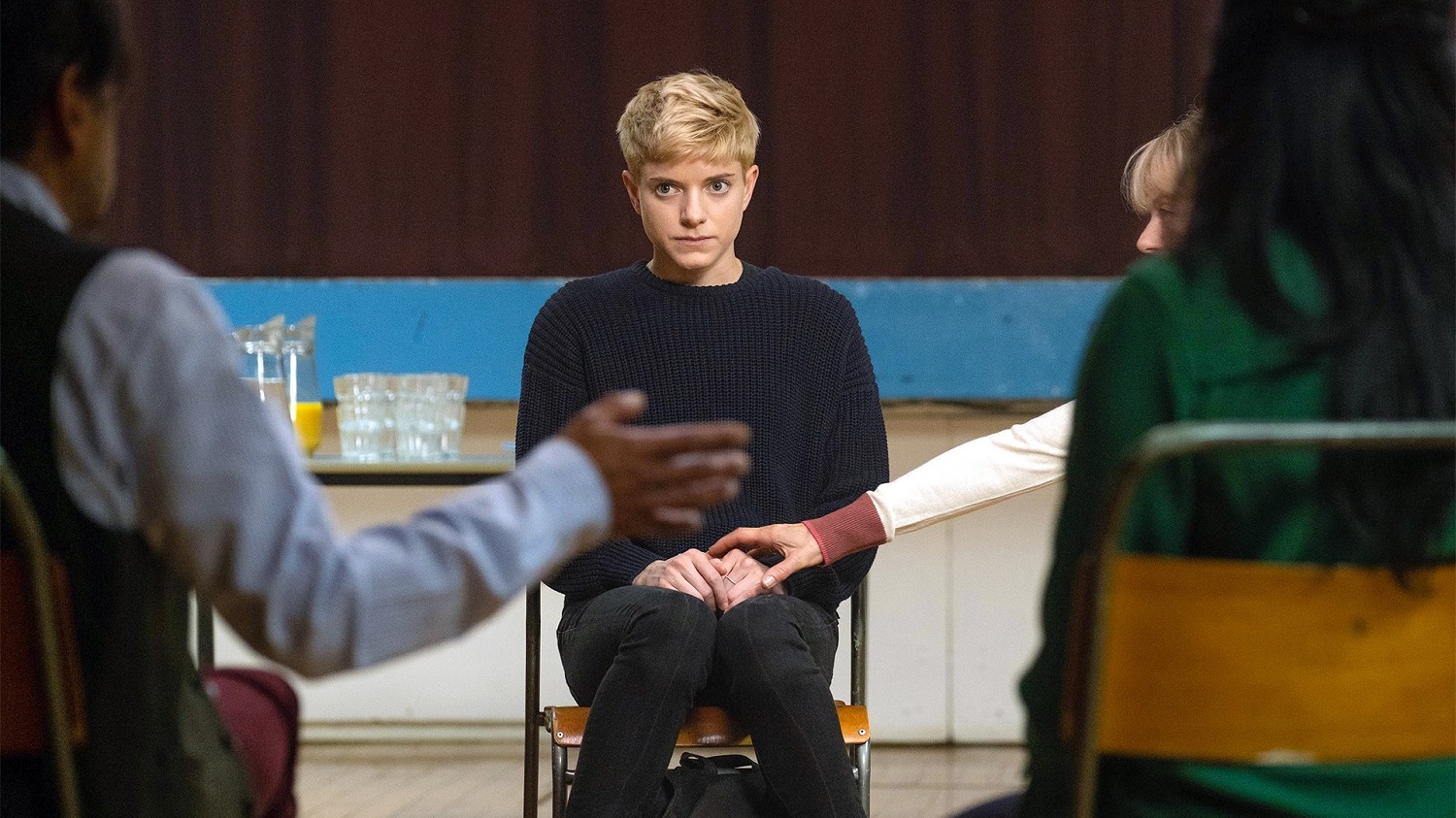
Canadian stand-up Mae Martin’s semi-autobiographical comedy-drama largely flew under the radar when it hit Channel 4 in the UK (and Netflix internationally) at the start of the March lockdown.
That’s a shame, because over the course of just six taut episodes Martin’s immaculate writing manages to pack in more laughter, tears and emotional ambiguity than shows four times the size.
Charting recovering drug addict Mae’s relationship with the repressed, privileged George (Fresh Meat’s Charlotte Ritchie), Feel Good is as delicate as it is cutting when it comes to exploring questions of life, life and identity.
Plus, Friends legend Lisa Kudrow is on barbarous form as Mae’s appalling mother, Linda. A show that deserves to be on every radar going.
The Attitude Awards issue is out now to download and to order globally.
Subscribe in print and get your first three issues for just £3, or digitally for just £1.54 per issue.

